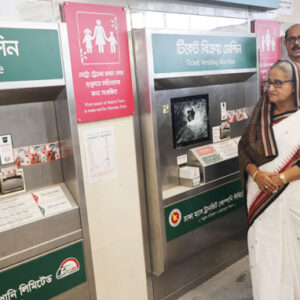
Sheikh Fazle Fahim, President, FBCCI
President of the Federation of Bangladesh Chambers of Commerce and Industry (FBCCI) Sheikh Fazle Fahim, in an interview, discusses the upcoming national budget for fiscal year 2020-21 and issues related to the ongoing Covid-19 crisis.
The Universe Tribune / ID/28 05 2020/TUT/0053 | 7:19:47 PM
How can the budget help businesses and the economy survive, especially amid the Covid-19 crisis?
The upcoming budget will likely reflect the realities of Covid-19 impact on the economy, as well as the Seventh Five Year Plan with the visions for 2021 and 2041. The various stimulus packages announced by the Prime Minister are likely to see a roadmap over the next three budgets.
The FBCCI will remain involved wherever possible – especially providing loan facilities to cottage, micro, small, medium or large enterprises – where the impact of Covid-19 was felt the most.
What are the phases of the stimulus packages’ implementation?
Loan stimulus was the first phase of implementation. The budget may also reflect on tax and value added tax (VAT) customs intervention, as it would be the second phase of implementation.
Third, implementation in the form of fiscal grants should be allocated for small and medium enterprises (SMEs) to sustain for one year and revive in the following two years, as domestic business and export are projected to shrink by at least 30%.
Tell us your expectations from the budget.
Advance income tax (AIT) rate should be revised from 5% to 3%, while advance tax (AT) should be withdrawn on industrial raw materials. Rebatable VAT needs to be revised from 15% to 10% while other non-rebatable multiple VAT rates need to be revised as it adds inflationary pressure to end users. VAT on turnover of Tk3 crore and above should be revised from 4% to 2%. We also proposed a reduction of corporate tax to 25% over the next three years.
VAT should be exempted on goods manufactured in export processing zones (EPZs) as per earlier policies. Policy consistency for an investment-friendly environment will only support the measures of the government. Custom duties should be adjusted to facilitate further industrial growth. Export source tax should be revised considering export shrinkage due to Covid-19 for next one year.
What budgetary measures are needed to turn the SME sector around?
We proposed to consider offering moratorium, discount or exemption from payment of income tax and VAT for SMEs, particularly for agriculture, retail, women entrepreneurs, restaurants, local retail fashion, light engineering, services sector, media, hospitality, tourism and logistics for next one year. Although these sections are not revenue targets, they create jobs, assist in consumer spending and help in money circulation.
Are banks cooperating in allocating funds from the stimulus package to SMEs?
The small entrepreneurs are receiving negligible support from banks to obtain loans from the government’s Tk20,000 crore stimulus package. Although the Bangladesh Association of Bankers (BAB) assured me of providing SMEs with loans as per the government circular, the initiatives are not as visible as expected. Maybe they would expedite once banking activities become regular after the end of the general holiday.
We have seen some bankers’ generosity for willful defaulters but when it comes to SMEs they have lots of excuses. Banks should stand beside SMEs during this crisis period.
How can the government overcome the revenue shortfall?
There has been a downward trend in revenue mobilization. These shortfalls of revenue may be adjusted through deficit financing through multinational financial sources, diverse financing instruments, restructuring of annual development programs, limited customs tools, non-revenue sources and widening of tax and VAT nets. By 2023, widening of tax and VAT net in compliance with LDC status will assist in greater revenue collection.
We acknowledge the challenges National Board of Revenue (NBR) faces but we are willing to work with them so that revenue shortfalls are minimized through widening of tax net, as well as LDC-compliant and industrialization-friendly revenue framework.
Will the upcoming budget help retain jobs in the industrial sector?
The stimulus’ purpose is to sustain normalcy as much as possible under prevailing realities and minimize job losses. Government stimulus is meant for employees who lost their jobs. The government will provide food and cash support for six months. Job losses are tough realities we have to face collectively within the law by employers and workers.
What steps could help the country’s real estate sector in the post Covid-19 scenario?
Globally, construction is a priority sector in post-disaster economies. Therefore, domestic and commercial real estate purchase financing schemes for consumers may be introduced for 25-30 years, a percentage of banks’ and NBFIs’ exposure should be earmarked for real estate purchases.
The Covid-19 priority investment scheme in all productive sectors, such as the real estate sector, should be allowed without penalty and prejudice for the next five years, including capital market investment schemes.




